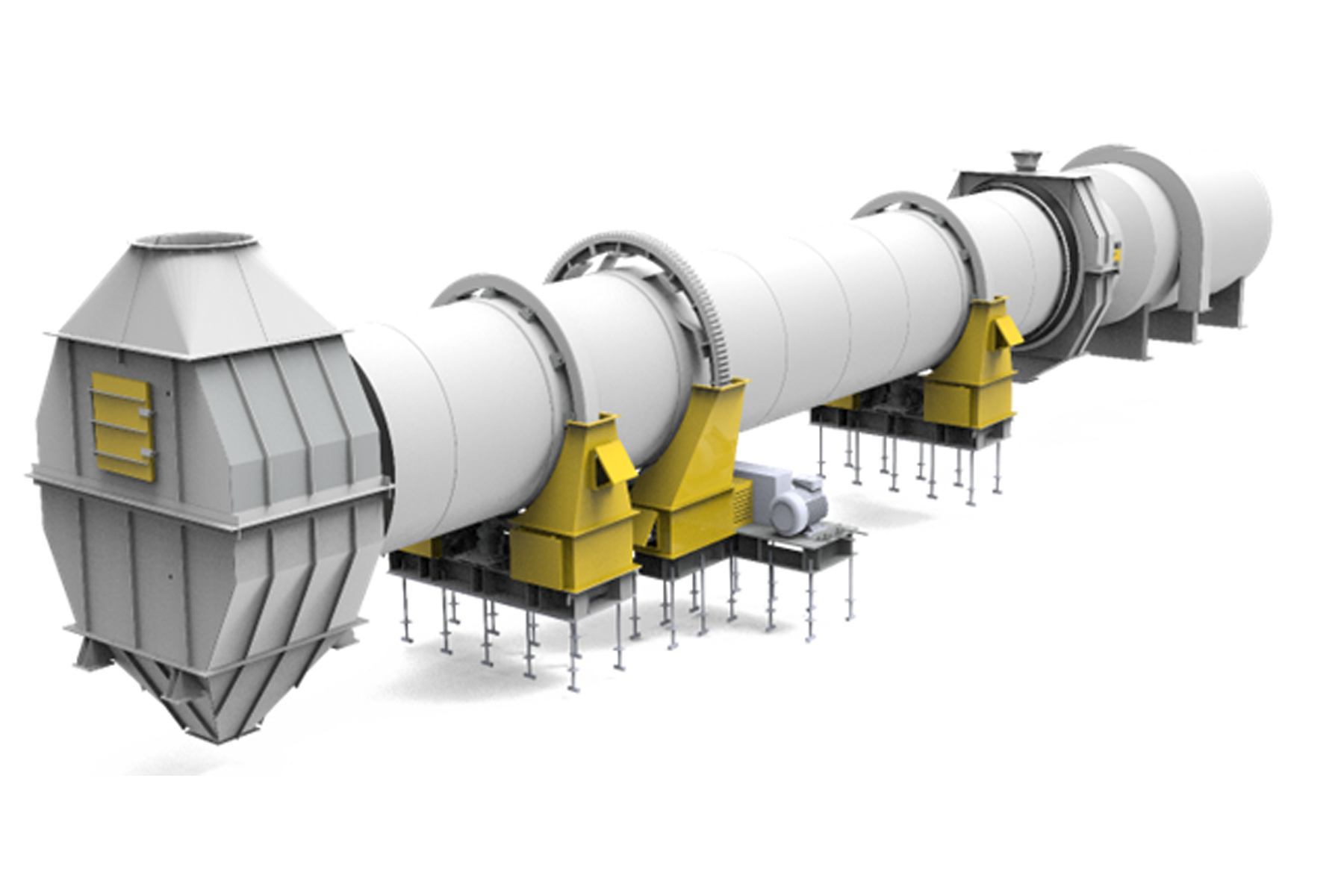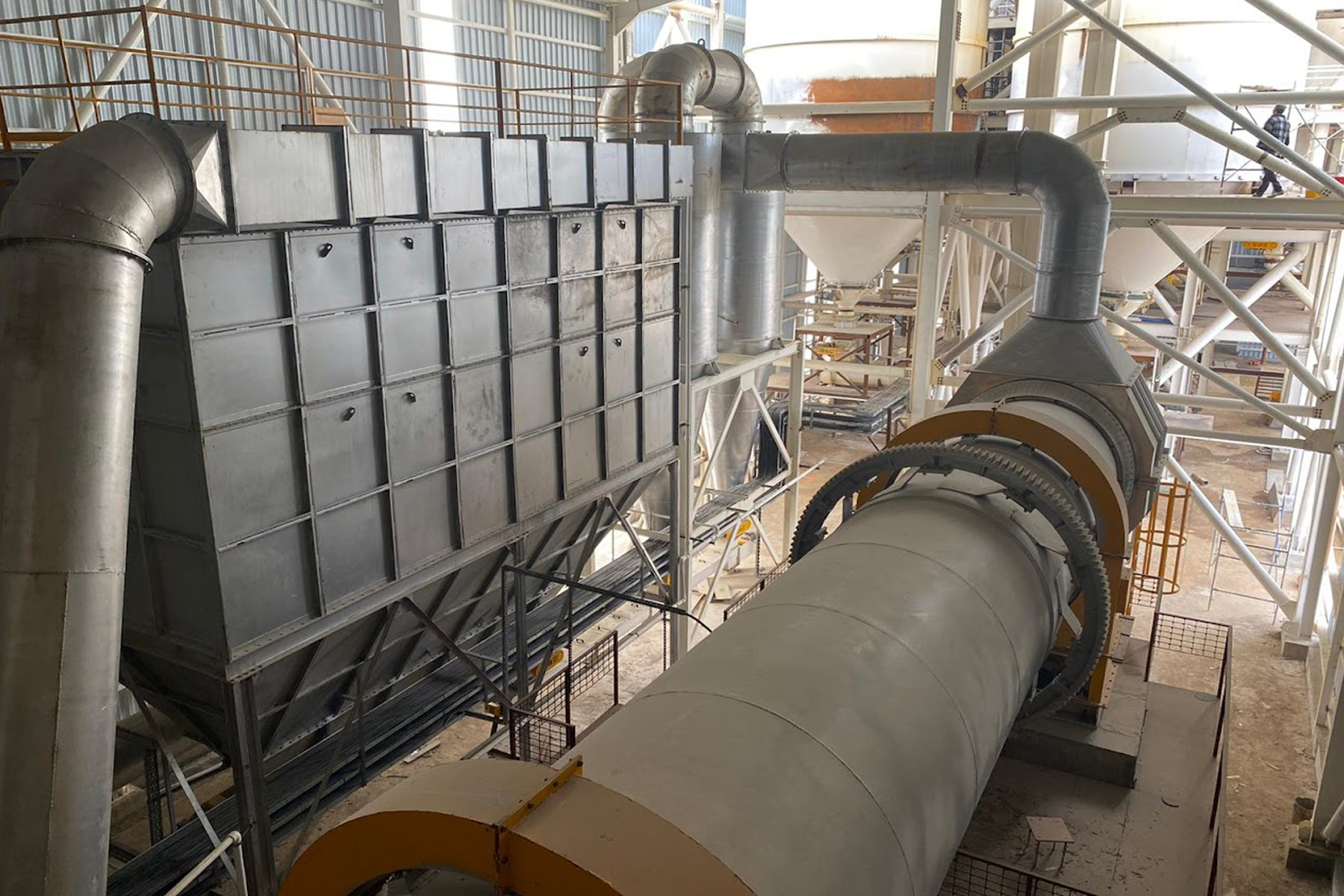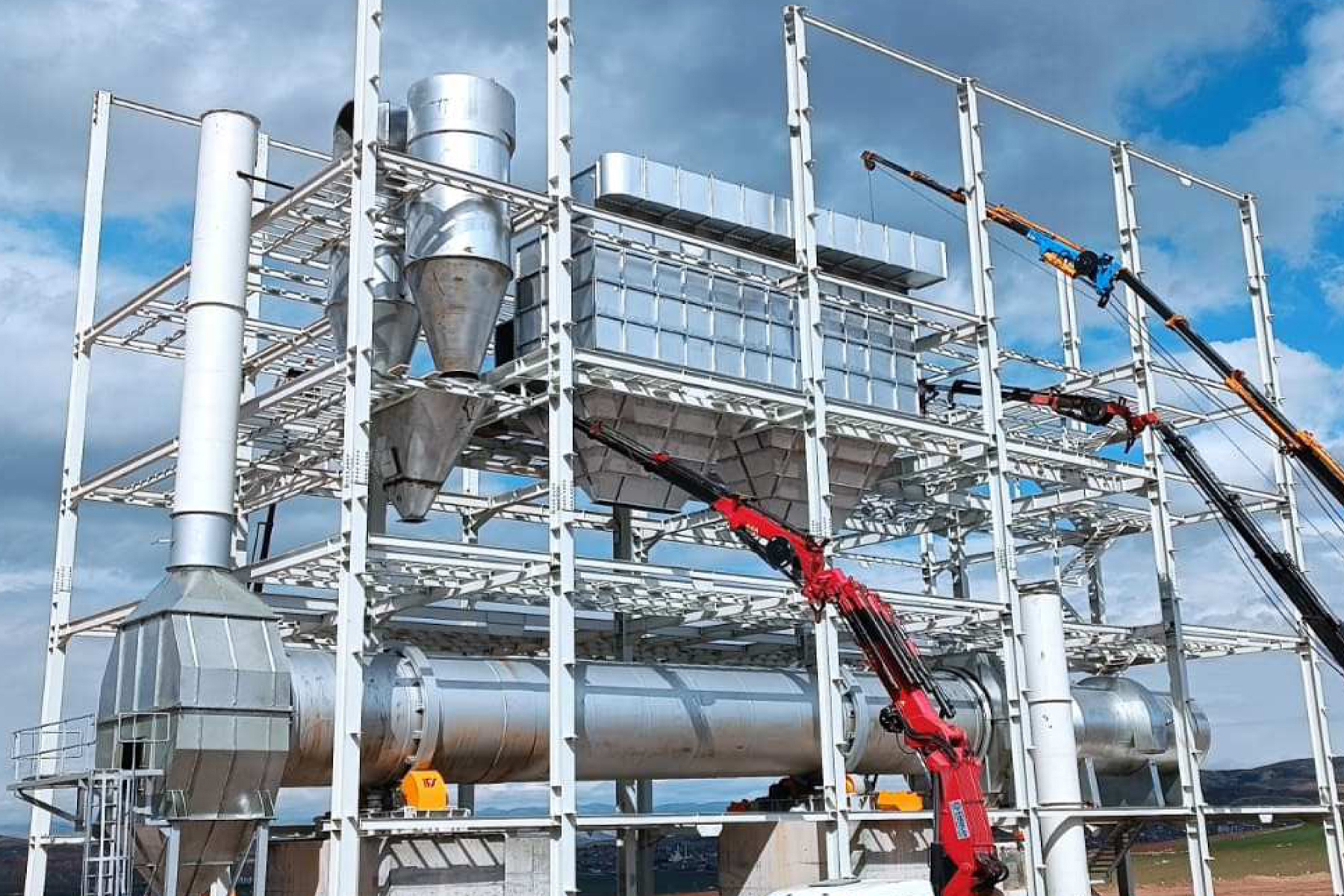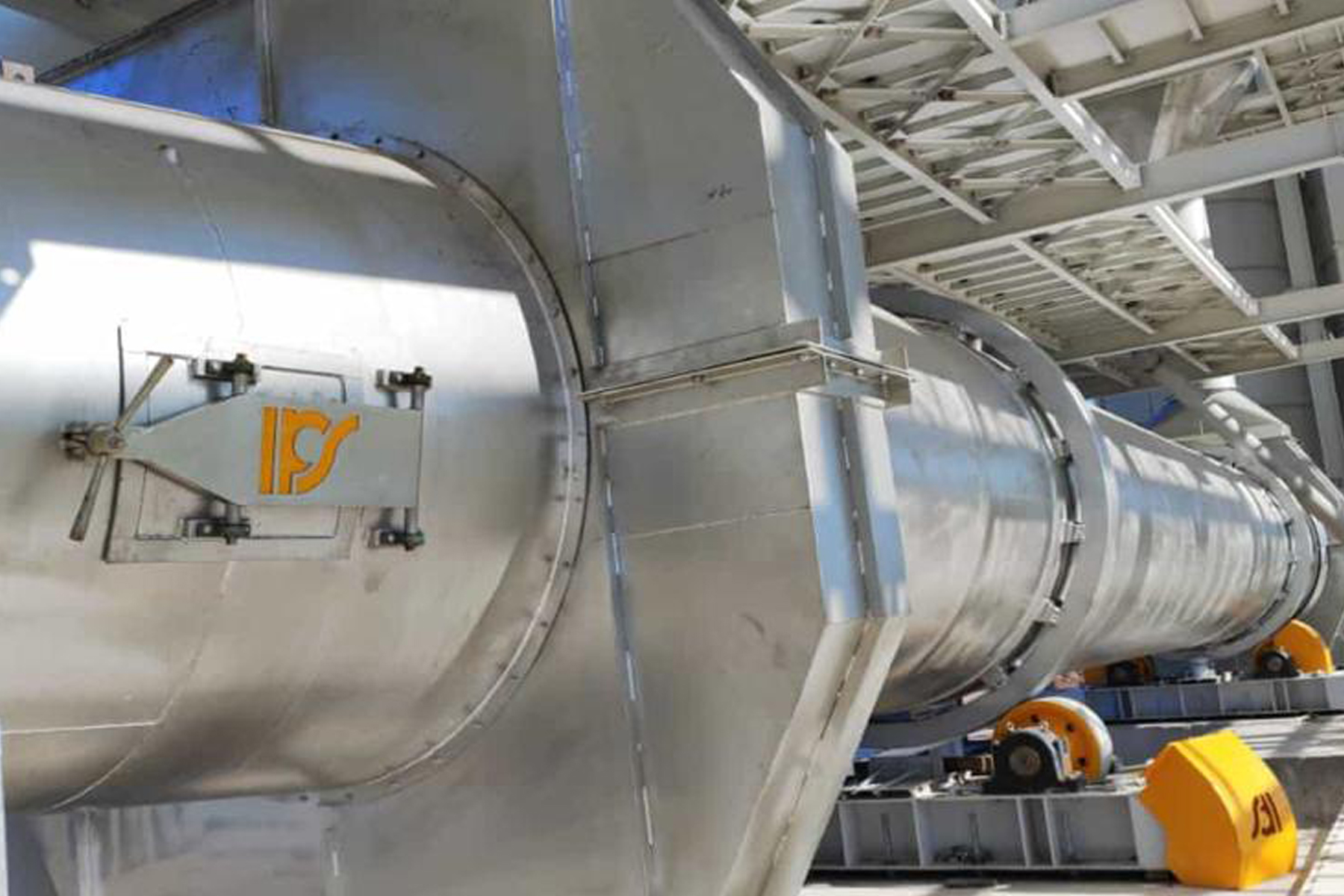ROTARY KILN.
Calcination & Drying Technology.
Calcination kilns, are an industrial processing equipment, are used for the application of high temperature heat to cause chemical reactions or remove moisture and other impurities.
Calcination kilns are used in different industries; gypsum, cement, metal, chemical, waste treatment and ore processing.

Rotary kilns, for gypsum calcination, are similar to cement kilns, but the main difference is that gypsum kilns are counter-flow compared to cement kilns. In gypsum kilns, the gypsum encounters a temperature of 600-650 °C when it is fed into the kiln and this temperature is decreases to around 150-160 °C at the kiln exit.
Calcination; The gypsum stone, which is crushed in the stone crushing unit and reduced to a grain size of 0-10 mm, is weighed with the help of a weighing belt and regularly fed into the kiln. The gypsum moves in the kiln depending on the kiln inclination and rotation speed and the calcined gypsum comes out of the kiln. The calcined gypsum is transferred to the grinding and classification unit to be reduced to the desired grain size.
Rotary kilns are available in capacities ranging from 5 tons/h to 50 tons/h. For factories with higher capacities, the system is designed with two or more kiln.
Rotary kiln system
Rotary kiln system consists of following units.
- Hot-air chamber is the unit to prepare hot air and feed into the kiln.
- Kiln body and its interior. Rotary kiln body is made pipe-like structure. Interior part of the rotary kiln has a special design developed by IPS Makina that enables high capacity and low fuel consumption.
Download PDF Datasheet
Please download IPS Makina general catalogue from the link below.
Download PDF





